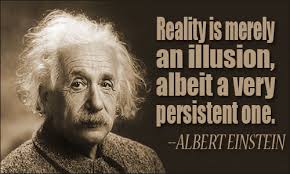|
the subtle insult of calling someone a "genius"
Max Planck: "New scientific ideas never spring from a communal body, however organized, but rather from the head of an individually inspired researcher who struggles with his problems in lonely thought and unites all his thought on one single point which is his whole world for the moment."
His name has become synonymous with “genius.” But Einstein’s own testimonies reveal how tired he was of the fawning, servile mob, heaping its unthinking accolades upon him.
We don’t really believe Einstein when he says “I’m not so smart.” But he knew too well the long years of both “preparation” and “incubation,” creativity's spawning ground, which eventually yielded their stellar results.
Calling someone a “genius” can be rather insulting. It’s a way of saying, “You’re just smart. You were lucky to be born smart. You’re gifted. It’s easy for you.” This kind of trash-talk denies and counts as nothing the many lonely years of working independently on a new idea which no one believed in. There is an old joke, “It took me 20 or 30 years to become an overnight sensation.” It’s more like that.
Real geniuses never talk about "genius"; it makes them nervous. Instead, they talk about hard work, about the long years of staying with a project when success seemed more than doubtful.
Einstein was not infallible; sometimes his arguments came up short. In his debates with Bohr about "God not playing dice with the universe," he was mistaken about the central role of probability concerning the underpinnings of reality. He wanted to believe, too much, in a deterministic, predictable, strictly law-abiding universe. (See Dr. Sheldrake's discussion on cosmic "habit.")
Editor's note: However, Einstein might still win this debate. The concept of "structured randomness" might be more accurate than pure randomness. Sometimes, it's necessary to view things from a higher perspective to see the order in apparent chaos. For example, a hurricane at street-level is just a big jumble, but from outer space it looks like a well orchestrated and finely tuned symphony.
Further, some of Einstein’s early teachers viewed him as rather on the dull side and did not think he'd amount to much. There were no parades and brass bands marching outside Einstein's boyhood house, proclaiming the coming of a new intellectual archon.
But none of this surface judgment counts for anything. The principles of higher creativity will benefit anyone, at any age or stage of life (in this world or the next). It doesn't matter what anyone else thinks; and, if your beginnings were somewhat lackluster, it doesn't even matter what you think, so to speak.
READ MORE on the "Creativity" page.
|



